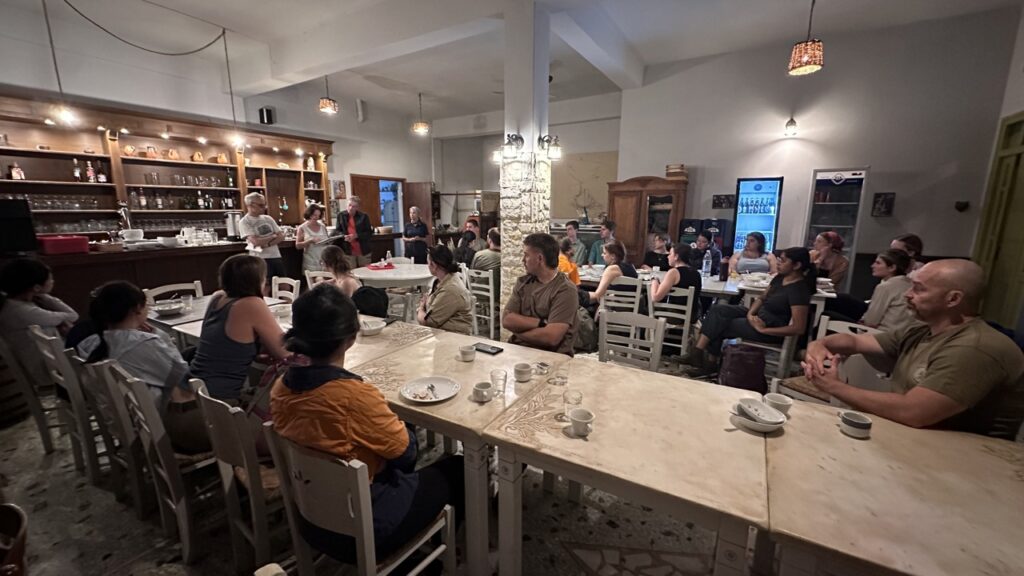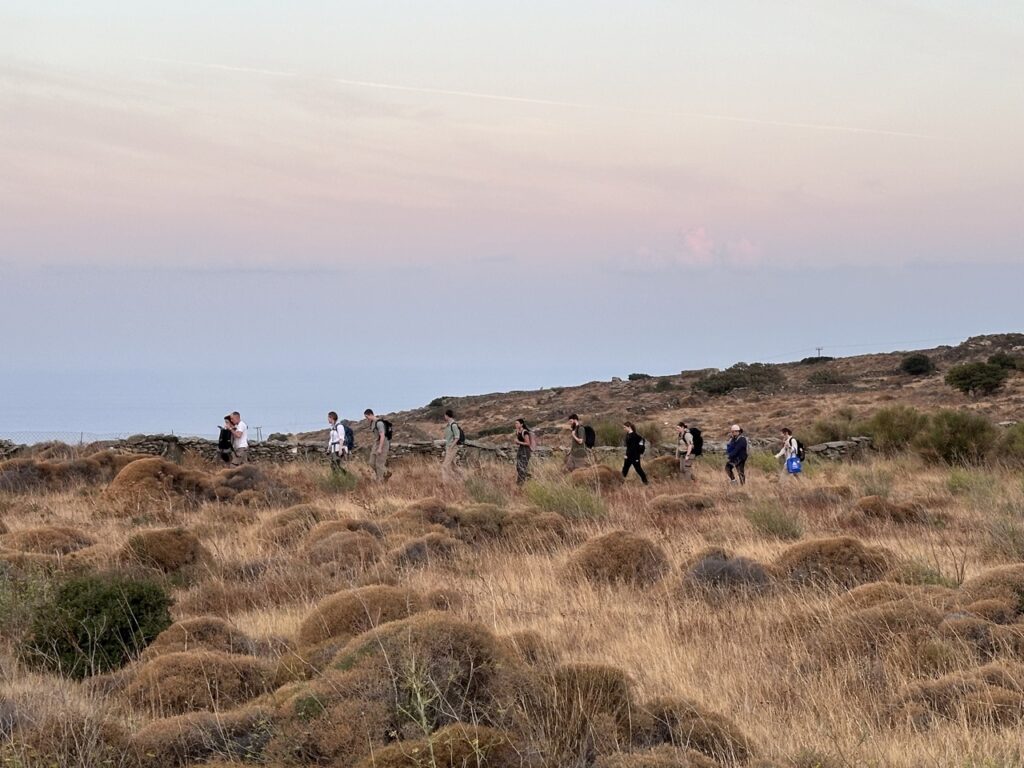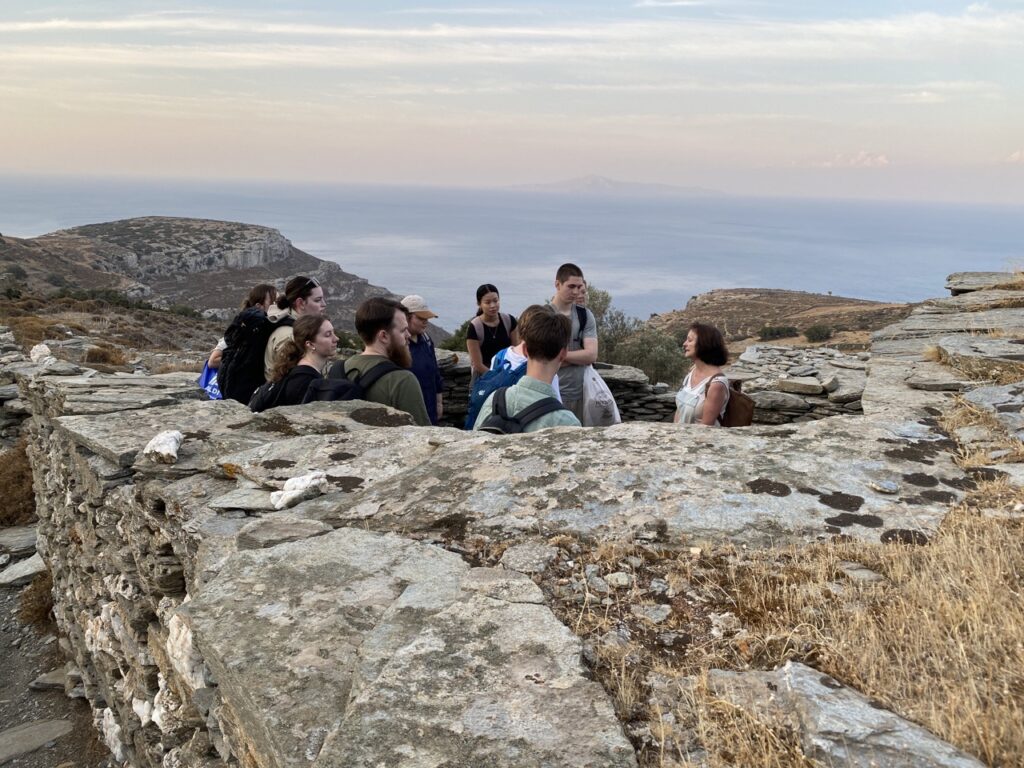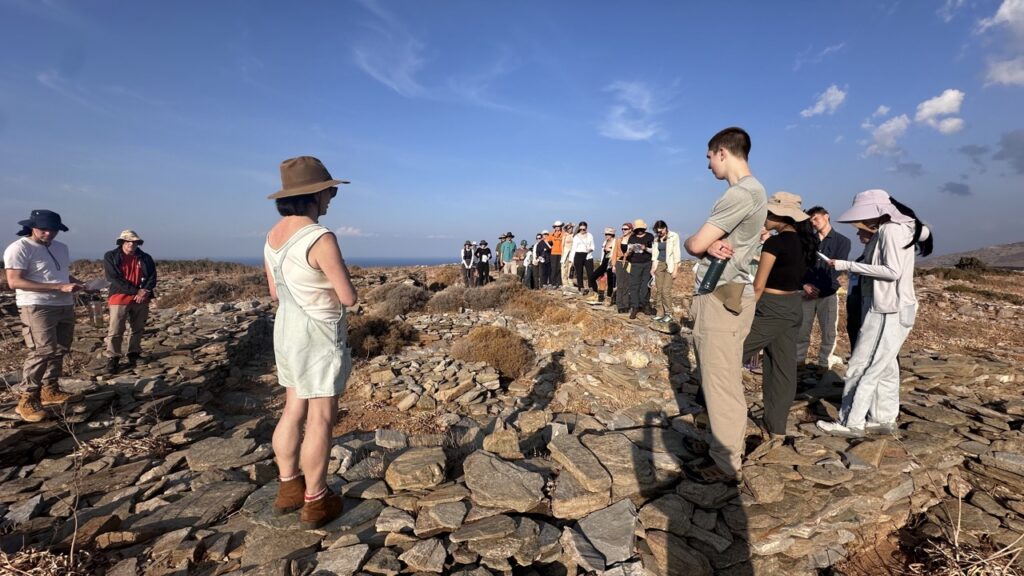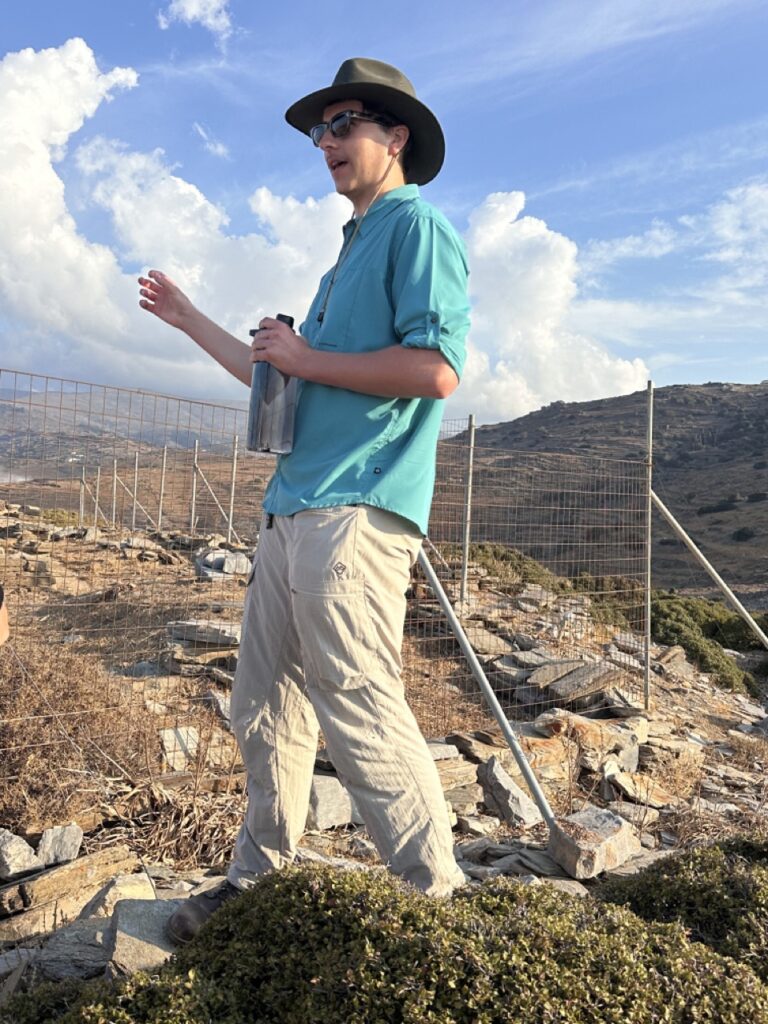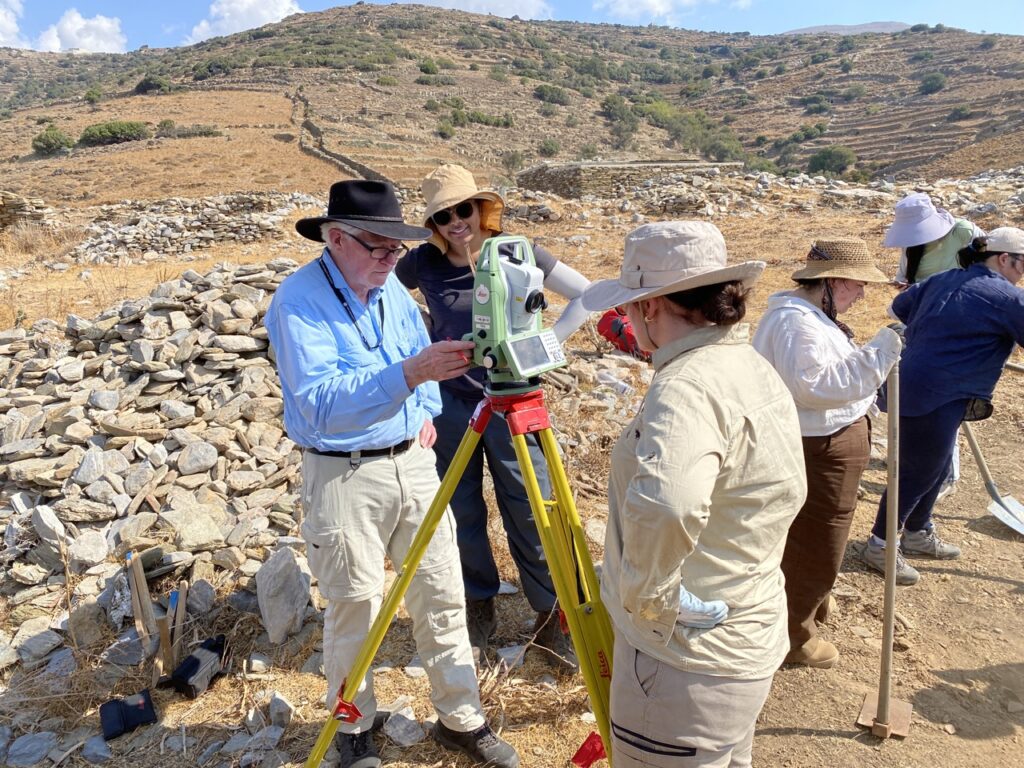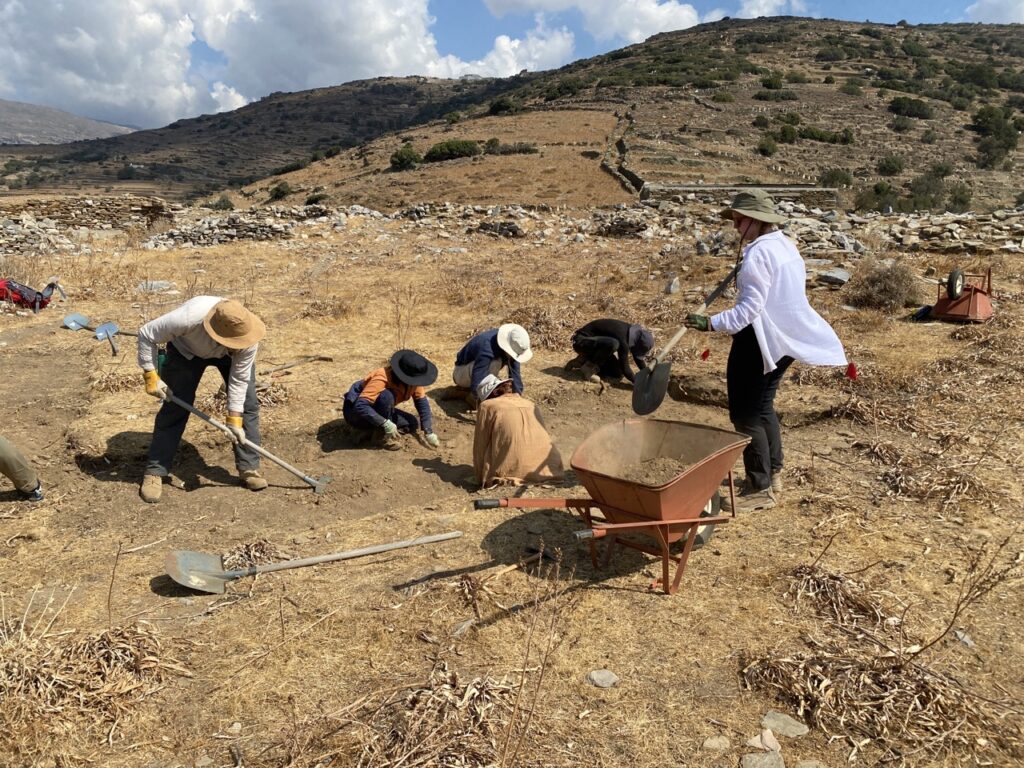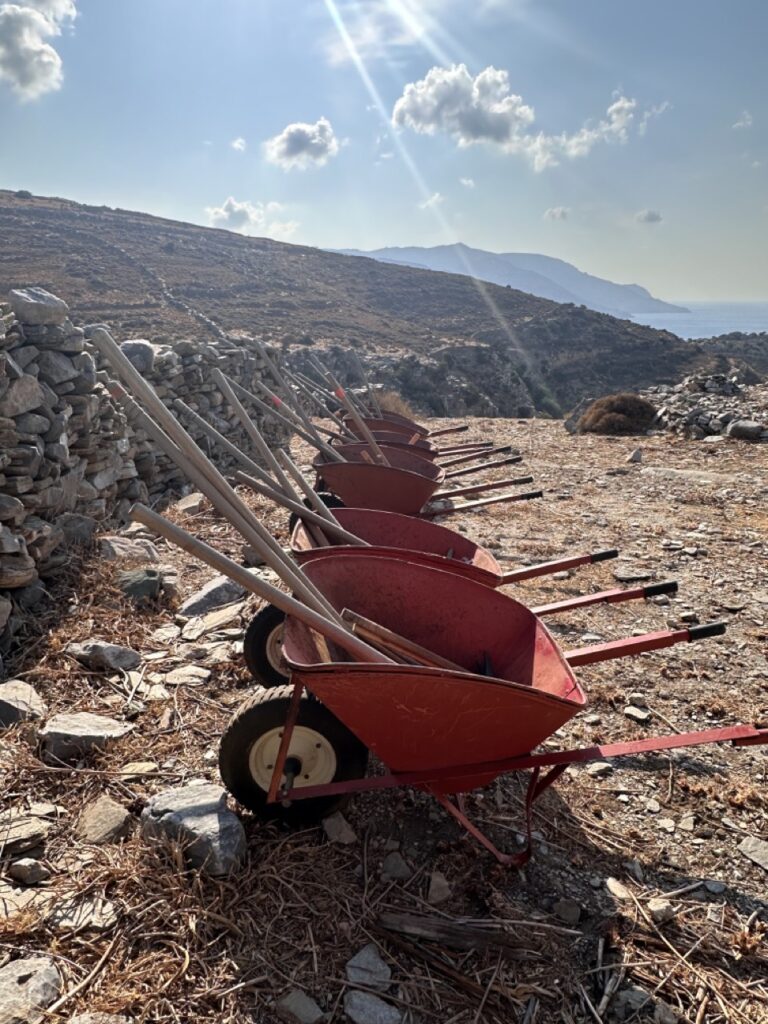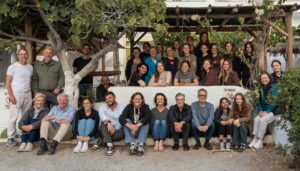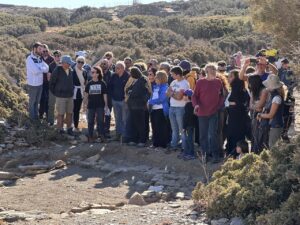Day 1 began with the chorus of the local roosters as everyone gathered for our predawn breakfast and induction prior to heading to the closest point to Zagora accessible by our convoy of cars.
The site of Zagora itself is approached by a challenging, yet spectacular walk. As we walked, the rising sun highlighted the promontory on which Zagora sits, providing most of us with our first view of the site.
Before work could begin however, a site tour with Directors, Associate Professor Dr Lesley Beaumont and Dr Paul Donnelly, provided us with the context and extent of previous excavations, in addition to showing us where this season’s work will take place. Archaeology graduate and participant Stephen Croft also provided us with his insights from his recent Honours thesis regarding Zagora’s temple and its development as we understand it to date.
After a restorative al fresco meal, which was much appreciated, the entire team got down to the business of clearing the surface of an area partly excavated during the 2019 and 2014 seasons just inside the fortification wall. These trench areas were backfilled and covered to protect them for the future, and the first task is to remove volumes of stones, weeds, dirt and the Geotextile protective fabric. Hot and dirty work that was undertaken with great enthusiasm and energy by everyone. This continued into the afternoon before we returned via the long walk up-hill, including the infamous heart break hill! A busy and satisfying start to the season.
